
Agatha Christie’s English Riviera
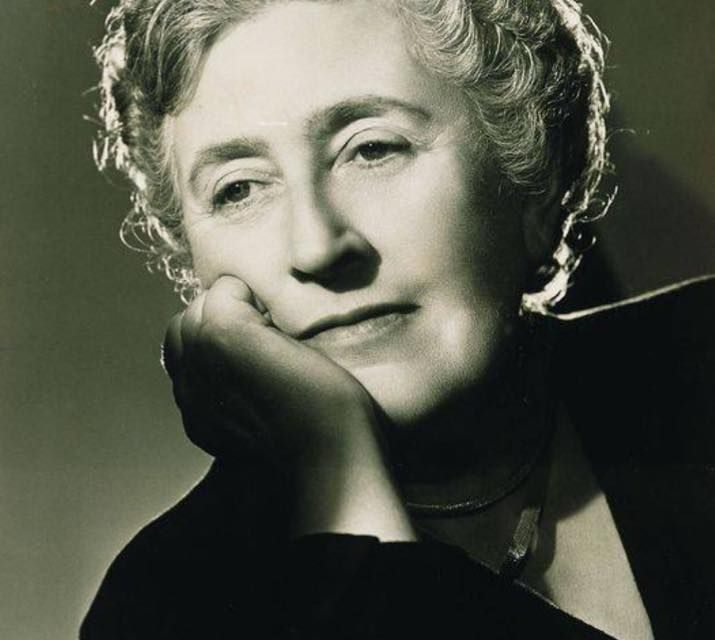
On the south coast of Devon, in that part of Britain known as the English Riviera, stands the picturesque town of Torquay, a stylish resort with a bustling waterfront and a scenic palm-lined promenade. Human history here goes back half a million years, as evidenced by the startling discoveries of prehistoric tools and other remains found in Kent’s Cavern. And though records of settled human occupation date back to the 11th century, Torquay didn’t become a winter health resort for another 800 years.
Princess Victoria (who later became Queen Victoria) visited Torquay in 1890, enhancing the town’s reputation as a superior resort. Four years after her visit, the Princess Gardens, which still face Torquay harbor, were built on reclaimed land, as was the Pavilion, which opened in 1912 and served as an elegant theater and concert hall.
More celebrated visitors followed Victoria, including the Russian Romanov family, which built a holiday home called Villa Syracusa, now the Overmead Hotel; the Prince of Wales; Countess Alexandra Tolstoy, wife of novelist Leo Tolstoy; Elizabeth Barrett Browning; Rudyard Kipling; Sir Arthur Conan Doyle, creator of the Sherlock Holmes stories; and Charles Darwin, who finished The Origin of the Species while staying in Torquay.
But one celebrity, more than any other, is identified with the town: Agatha Christie, the most published novelist in the world, with two billion books in 50 languages in print. Online games based on her mysteries have had more than 30 million downloads.
Though she was named a Dame of the British Empire in 1971, Christie is perhaps best known as the Queen of Crime, creator of the iconic detectives Hercule Poirot and Miss Jane Marple.
Dame Agatha was born in Torquay on September 15, 1890. Every year, in mid-September, the town commemorates her birthday. Some years ago, I joined the legions of fans who converged on Torquay to celebrate the 120th anniversary of Christie’s birth in a week-long festival of murder, mayhem, and mischief. The celebration included some 40 events, among them appearances by Julia McKenzie, the new Miss Marple featured in the BBC films; a Hercule Poirot lookalike; and Christie’s grandson, Mathew Pritchard.
The schedule also included an old-fashioned English fete with period costumes, a production of Witness for the Prosecution, and a grand birthday party with fireworks.
Dame Agatha was an intrepid traveler and explorer who visited Egypt and the Middle East and met her second husband, Max Mallowan, while she was viewing an excavation. In her imagination, she saw crime everywhere she went. The result: Murder in Mesopotamia, They Came to Baghdad, and Death on the Nile.
Christie rode the famous Venice-Simplon Express to Istanbul and, like all upper-class Britons of the time, stopped at the Pera Palace. She may even have written Murder on the Orient Express there. (Her room, 411, is now called the Agatha Christie Room.)
But it was the people and places of her own hometown of Torquay, in the idyllic rural county of Devon, that really fired Christie’s murderous imagination, resulting in no fewer than 15 mysteries, some set in her own gracious Georgian home, Greenway.
Like other Christie devotees, I was eager to visit the landmarks of Dame Agatha’s life—and the murder settings in her stories. The Torquay Tourist Centre on Vaughan Parade has a leaflet on the Agatha Christie Mile, so called because it takes in many of the locations that have Christie connections.
The faded but still lovely Pavilion was where Agatha went to many concerts, including one she attended with Archie Christie, her first husband.
A few steps from the Pavilion is the Agatha Christie bust, which was unveiled in September 1990 by the writer’s daughter, Rosalind Hicks, to commemorate the centenary of her mother’s birth.
Along the picturesque seafront is the Grand Hotel, where, in December 1913, Agatha and Archie spent their brief honeymoon before he shipped overseas to fight in World War I. The marriage didn’t last—Archie turned out to be what the Brits call a “rotter” who cheated on his wife—but the hotel did, and today it’s a favorite with visitors to Torquay.
Another hotel, the Imperial (which Christie renamed the Majestic), plays a role in her writing. It’s the setting of the opening chapter of Peril at End House and is described as“…in its own grounds on a headland overlooking the sea. The gardens of the hotel lay below us freely interspersed with palm trees. The sea was of a deep and lovely blue.” Today the modernized Imperial is part of the Barcelo hotel group.
During the war, Agatha worked as a nurse at Torquay Town Hall, which served as a Red Cross hospital. When she transferred to the Dispensary, she studied with Torquay’s leading pharmacist—and learned all about the poisons that were to become her preferred murder method.
At 800-year-old Torre Abbey, head gardener Ali Marshall has created an homage to the novelist’s fondness for toxins: the Agatha Christie Potent Plants Garden, an instantly recognizable cornucopia of grow-your-own agents of homicide—dwarf peaches and nectarines, whose fruit stones produce cyanide, used in Sparkling Cyanide; deadly nightshade, the weapon in The Caribbean Mystery; and aconite, which dispatched several characters in 4.50 from Paddington.
Other treasures are found at the Agatha Christie Gallery of the Torquay Museum, including a vast collection of photographs of the writer and her life in the town where she had been born. The images show a more innocent time when pleasures were simpler: afternoon tea at the Marine Spa, concerts at the Pavilion Theatre, roller-skating on the Princess Pier.
A charming picture captures Agatha skating in an ankle-length skirt and a big feathered hat. In addition to many of the writer’s personal items, there’s a history of the actors who played Poirot, starting with Charles Laughton in his 1928 West End performance. (My least favorite was Albert Finney, who turned in a near-cartoonish performance in the 1974 Hollywood version of Murder on the Orient Express.)
A highlight of my visit to the English Riviera was a tour of Greenway, the 400-year-old holiday home Dame Agatha purchased in 1938 for £6,000. To reach the house, which is located on the River Dart, I took the vintage Greenway bus; the house is also accessible by ferry (which I rode on the return trip) and by car (advance parking reservations are necessary). Greenway was donated to the National Trust by Christie’s family, and in 2009, after a restoration that cost £5.4 million (roughly $8.5 million US), it was opened to the public.
Stuffed with weird, wacky, and wonderful things, the Georgian house is warm and welcoming and very much alive, as if Dame Agatha herself might still be in residence.
A pile of gardening hats belonging to her son-in-law rests on a table in the entrance hall, along with a (really) vintage mobile phone that looks as if it weighs 10 pounds. The author’s personal collections—papier mache, pottery, ceramics, pictures, books and more—fill the rooms, which are light and airy, creating a 1930s setting with an overlay of 1950s amenities. In each room are scrapbooks containing Christie’s notes on parties and entertainments, dinner menus, as well as the sweet trivia of life at Greenway, which she described as “the loveliest place in the world.”
Dame Agatha’s presence is felt throughout the home, especially when a recording of her voice is played, in which she talks about her career in a matter-of-fact way, saying she made notes on plots as they occurred to her, but then had to find time to do the writing.
Before leaving Greenway, I checked out the section of the house that had been turned into a duplex rental apartment that sleeps 8 and has views of the Dart estuary (rent ranges from £569 to £1119 for three days, depending on the season). The furniture here is from the Christie collection and the kitchen is pure 1950s, making this a dream spot for fans who are also lovers of all things retro.
If holiday at Greenway isn’t in the cards, it’s possible to have a light lunch on the property, at the Barn Café—or picnic in the garden, with views over the River Dart.
My trip concluded with a ride on the Paignton to Dartmouth Steam Railway, a vintage train that runs seven miles, following the coast and the River Dart.
Dame Agatha often took this journey, getting off at Churston Station to continue by car to her home at Greenway. She used the train in The ABC Murders and again in Dead Man’s Folly.
When it was time for me to return home, I felt as if I were not only leaving a place, but also a time—one I could revisit by reading a favorite Agatha Christie novel.
This year, the 5-day International Agatha Christie Festival is scheduled for 12th-15th September. On September 12th, from 7 p.m. until 9:30 p.m., Greenway will present a book club with a twist in honor of Christie’s birthday. Drinks and canapés will be followed by a tour of the house, then a five-course dinner and a chaired discussion of Christie’s literary works including Dead Man’s Folly, which Christie based at Greenway. Ticket price is £100.00 .
For more information on the Agatha Christie Festival, visit https://www.englishriviera.co.uk./whats-on/major-events/agatha-christie-festival. For more information on Greenway, visit https://www.nationaltrust.org.uk/greenway.

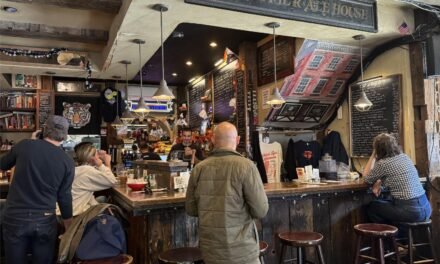








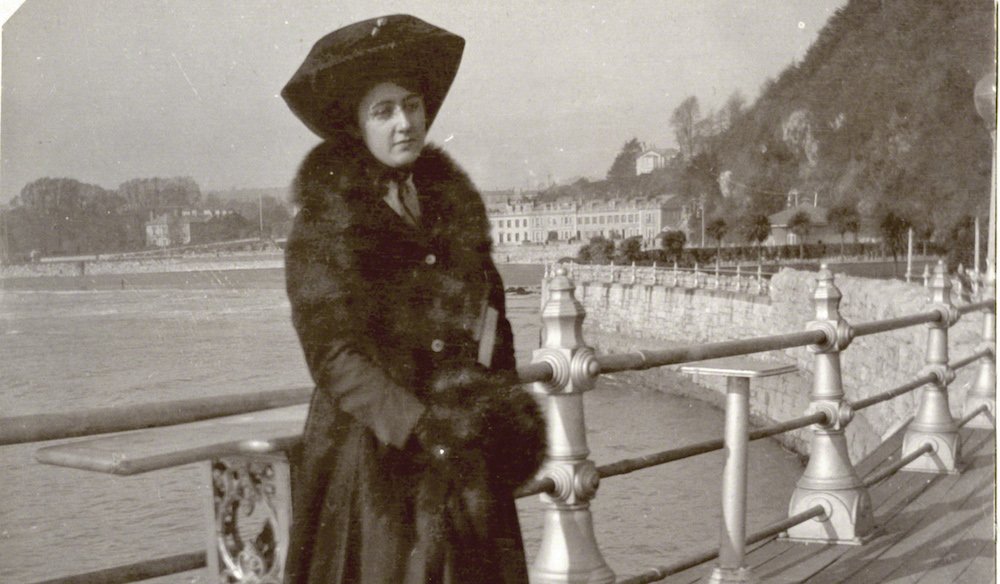
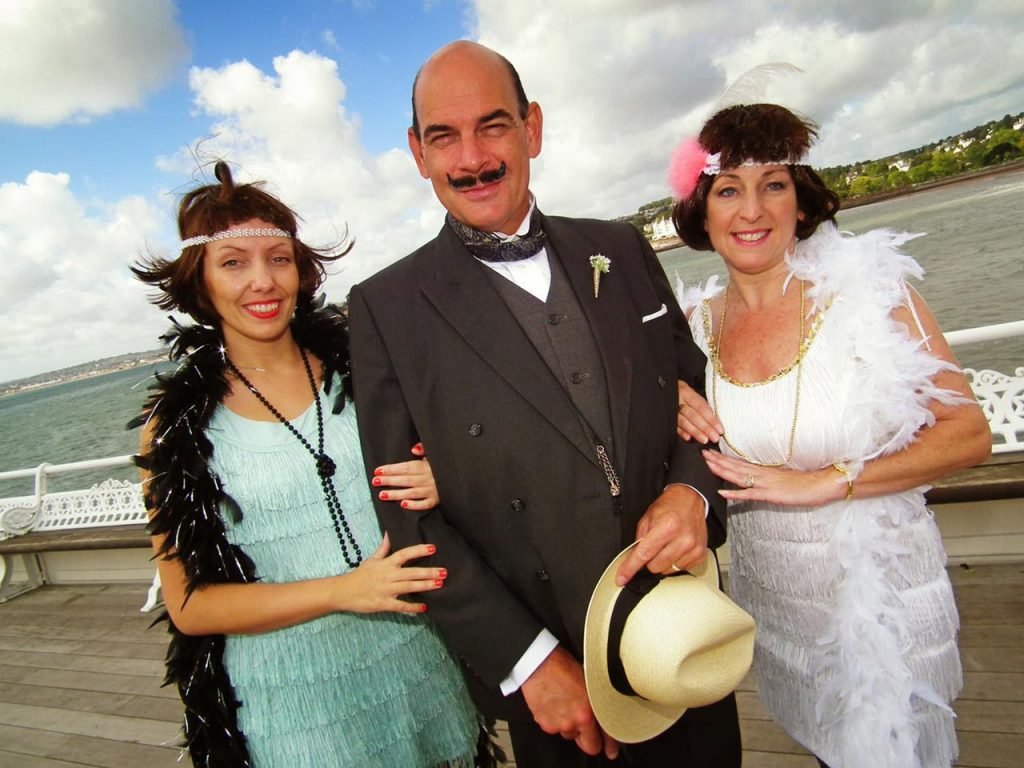
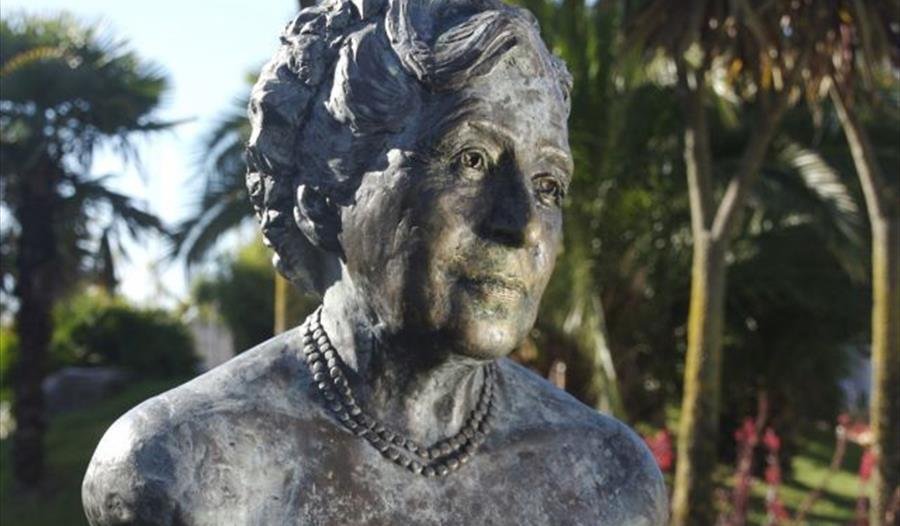
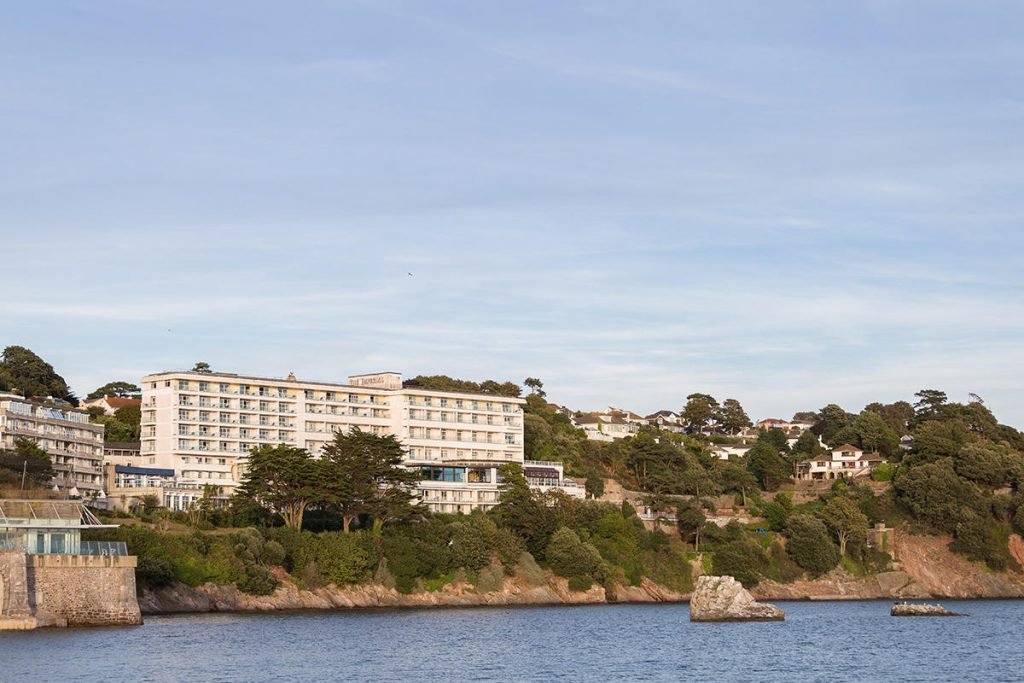
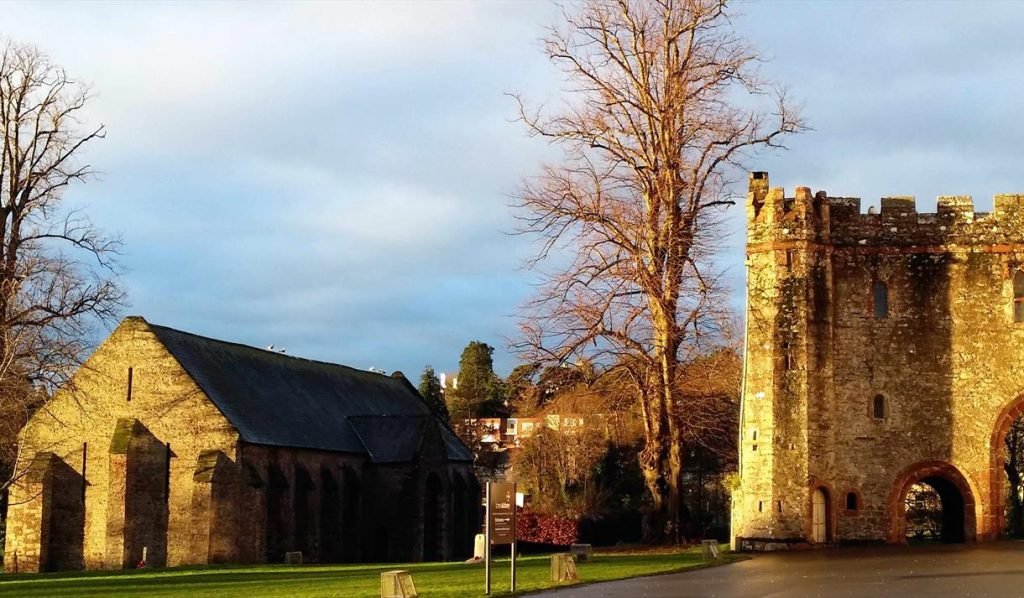
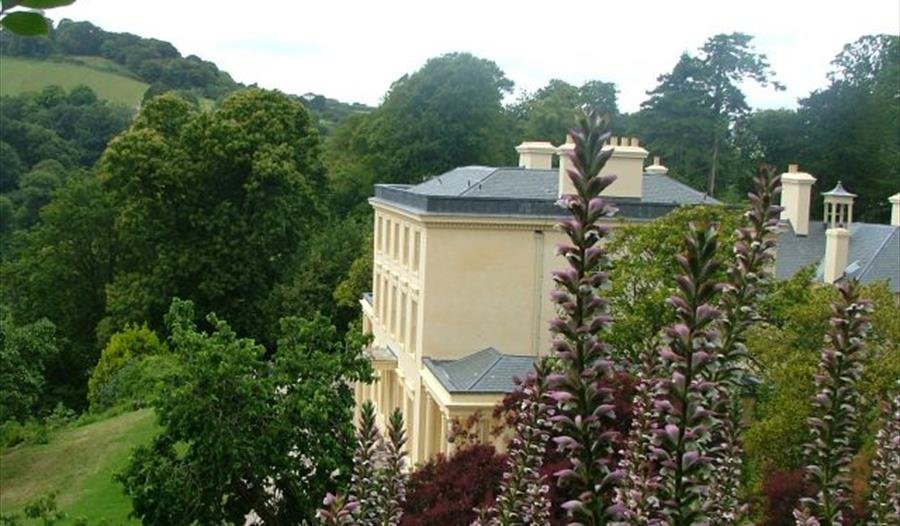



![Diageo’s Astral Margarita: Ready to Serve [COCKTAIL TIME]](https://luxebeatmag.com/wp-content/uploads/2024/02/IMG_1164-e1706806363980-440x264.jpg)






















